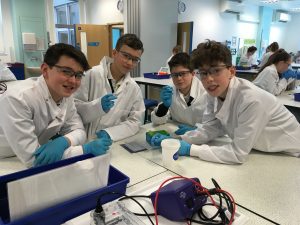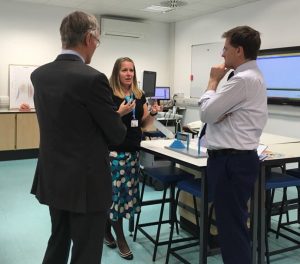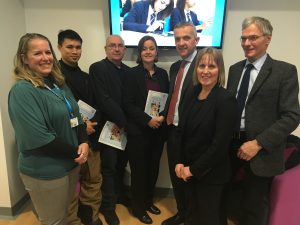Although more than 7,500 students already having visited LifeLab, it is always just as inspiring for our first-time visitors.
What better time to reflect on the importance of our project in encouraging young people to consider a future in science than during National Science Week 2018.
The campaign which is running throughout this week is aimed up championing all things science and underlining the importance of research and discovery throughout the country.
Here at LifeLab we are doing our bit by empowering teenagers to make healthy choices by investigating their own health through scientific enquiry.
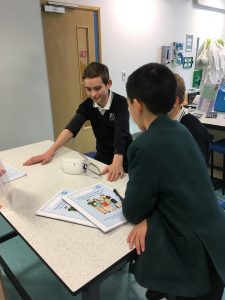
After training teachers to lead in-school sessions with a with a series of lessons and resources, the students then spend the day in our custom-built laboratory at University Hospital Southampton.
Here they are able to get hands-on with their health and study things like DNA, grip strength, and use techniques like ultrasound.
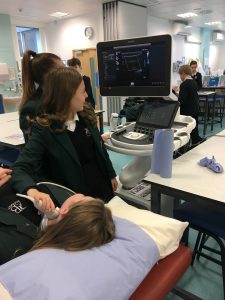
This week we welcomed Bohunt school from Hampshire, so we took the opportunity to ask them what part of the Lifelab experience they enjoyed the most.
Jake told us: “A visit here makes your understanding of science and biology so much clearer.”
His classmate Eve said: “It was fun and important because you learn different things from when you are in school.” Fellow student Marley added: “It has made me more interested in science and discovering new things was quite fun.”
Along with being able to measure their own health, the students were also inspired by our Meet the Scientist session where they got to meet a researcher currently working in the field of cancer sciences.
Jake said: “I have been inspired to do something with research in cancer. You hear how common it is so it has given me that determination to do something about it.”
Isla added: “Meeting James who was working on this vaccine for oral cancer, was really inspiring.”
Watch the video here
